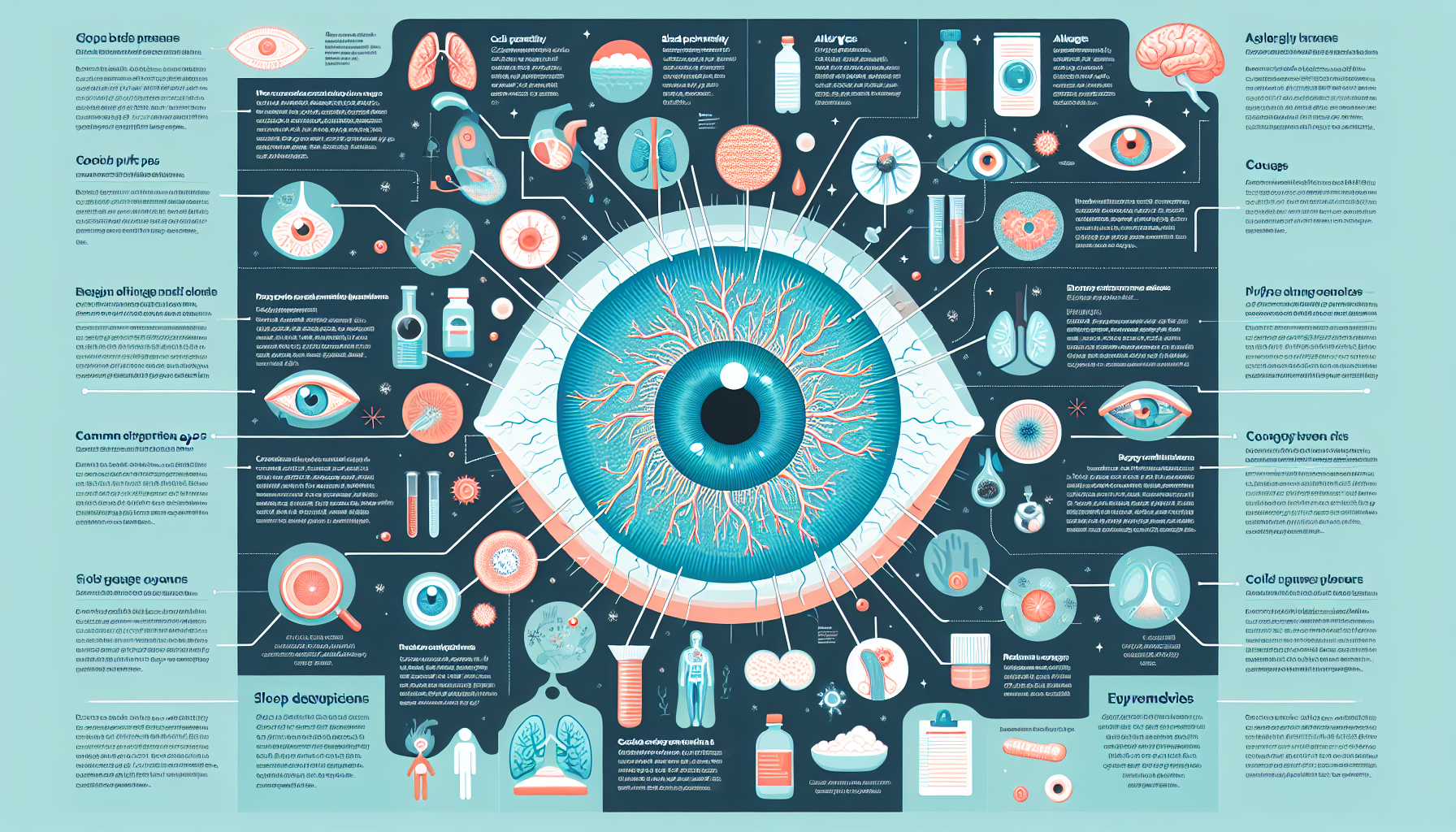Why Do Our Eyes Sometimes Puff Up? Understanding the Causes Behind Those Unwanted Bags
Have you ever woken up in the morning to find your eyes looking a bit like they just competed in an overnight boxing match? Or perhaps you’ve had moments when tears from laughter (or sadness) left you with those pesky swollen eyelids? Surprisingly, our eyes are incredibly sensitive and can easily puff up for more reasons than we might realize. While trying to tackle puffy eyes with a quick remedy can be tempting, persistent swelling might be your body sending a signal that something isn’t quite right. Let’s explore some common culprits behind frequent puffiness and learn how to address them effectively.
1. Sleep Deprivation
Have you ever wondered why your under-eye bags seem more pronounced after a sleepless night? Dr. Anar Mikailov, co-founder of Skintensive and a board-certified dermatologist, explains that "lack of sleep can lead to an increase in specific hormones that cause fluid retention." Your body relies on sleep to flush out toxins and waste. When you skimp on those precious hours, toxins accumulate, leading not only to fatigue but also that dreaded puffiness. In fact, many people report their eye swelling dramatically reduces after a full night's rest.
2. Sleeping Position
Your sleep position plays a surprising role in how your face looks upon waking. If you're the type to bury your face into a pillow, chances are, you're experiencing fluid accumulation around your eyes. Dr. Mikailov adds, “When sleeping face down, fluids can easily gather around your eyes.” Instead, try elevating your head with an extra pillow—gravity can help keep those fluids away from your face.
3. Hormonal Changes
For those who menstruate, swelling can be linked to hormonal fluctuations, particularly in the premenstrual phase. Dr. Mikailov notes that elevated progesterone levels can cause your body to retain extra water, often showing up as puffiness around your eyes. Many women experience this feeling every month, serving as a natural reminder of the hormonal changes occurring.
4. Allergies
Allergies are a notorious culprit for puffy eyes—springtime sneezes can lead to swollen, irritated lids. According to Dr. Mikailov, increased histamine release during allergic reactions is the leading cause of inflammation. If you've noticed your eyes swell at certain times of the year, it may be worth consulting an allergist to pinpoint specific triggers. An allergy-friendly over-the-counter antihistamine can offer swift relief in some cases.
5. Dehydration
Strange as it sounds, not drinking enough water can cause your body to hold onto excess fluid. When your body is dehydrated, it tends to cling to any water it can find, resulting in puffiness, especially around the eyes. Make sure you're hydrating properly throughout the day—keeping a stylish water bottle on your desk can be both a functional and fashionable reminder.
6. Crying
It’s no surprise that tears can lead to puffy eyes, but why does it happen? Dr. Mikailov explains that “after crying, the tissues around the eyes can over-retain tears, leading to extreme swelling.” Moreover, the skin around your eyes is thinner and exceptionally sensitive. The act of wiping tears can also irritate the skin, contributing to inflammation and puffiness.
The Bottom Line
Next time you find yourself with puffy eyes, consider these causes rather than immediately reaching for the concealer. Whether it’s lack of sleep, allergies, or even crying, understanding the root of the issue can empower you to find the best solutions. From adjusting your sleep position to staying hydrated, small changes can make a big difference in reducing those pesky bags. And remember, if puffiness becomes a frequent issue, don’t hesitate to consult a healthcare professional for further insights! After all, your eyes deserve to sparkle without any unwanted baggage.
